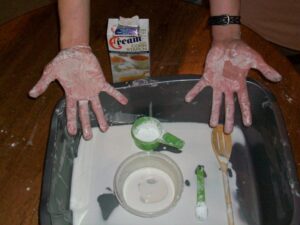Winning an award, no matter how grand or niche the title, is always a great source of pride. But to win two top awards within the span of a year is even more impressive.

Photo: City College
This is the case for Dr. Jeff Morris of the City College Chemical Engineering Department.
Morris was awarded the Bingham Medal from the Society of Rheology this spring and the Weissenberg Award from the European Society of Rheology last year.
“It’s wonderful,” Morris, who is also the director of the Benjamin Levich Institute for Physico-Chemical Hydrodynamics in the Grove School, told The RICC. “You’re just glad that people recognize that what you’re saying is improving their understanding of things and, in particular, on a problem which had been quite mysterious for a long time. It is also great that it shines a light on students’ and colleagues’ work, as City College has been such a supportive environment for this work.”
Rheology, an area of fluid mechanics, is the science of flowing materials. Its main focus is the study of complex fluids, which behave differently from simple fluids, like water. Complex fluids can act as both liquids and solids and understanding how they work can have many useful, real-world applications.
Toothpaste, mayonnaise, ketchup, peanut butter, facial creams, and lotions are all examples of complex fluids. They’ll sit on a spoon, for example, like a solid but will flow when pressure is applied to them, such as the squeezing or tapping of a bottle.
The flow of fluids is also important in the oil industry, in which Morris used to work, and in chocolate processing.
Even naturally occurring materials like mud and blood count as complex fluids due to their consistencies.
“It’s an area that is found across many different industries and parts of daily life,” Morris said. “The behavior of these are all related to the kind of work that I do.”
Rheologists find ways to use the behavior of complex fluids to create products that people can use in their daily lives. After all, all our favorite condiments and personal care items are complex fluids.
In his work specifically, Morris deals with suspensions. Suspensions are particles suspended in a liquid. The more particles that are in that liquid, the more resistant to flow the liquid becomes — meaning, the less liquid-like and the more goopy.

Photo: Baminnick | Wikimedia Commons
His 2023 award was based on work he’s done regarding suspensions, and the basic idea can be seen in your kitchen by mixing up a substance called oobleck. It’s a 50/50 cornstarch and water mixture that kids often make as a simple science experiment.
Oobleck has a property called shear thickening, which means that it undergoes a rapid change in its consistency.
When you gently and slowly run your fingers over or through it, the mixture maintains its liquidity. When you drag your hand through it fast and hard, it becomes more like a solid.
The work that won Morris the award was about understanding shear thickening and how it works. What he found was that the fluid barriers between the particles in oobleck are maintained by forces pushing the particles apart, but when the flow creates stronger forces, the particles rub directly on each other and create friction. This is what causes the rigidity of the fluid when force is applied.
Being that he’s this year’s award winner, Morris will be honored during and give the keynote lecture at this year’s International Congress on Rheology in Athens, Greece on Aug. 3, also his 20th wedding anniversary. He mentioned that he is very pleased that his family will attend.
His lecture will touch on ideas about shear thickening and relate it to some of his earlier works to show how all the concepts tie together.
As exciting as this new award is, it’s made even more exciting by the announcement of the earlier award so recently. Morris’s 2022 European award came as a surprise to him since he works in America.
“[It was] something of a shock,” he said.
Morris’s research is not done yet. His current and future work will try to understand the overall structure of complex fluids and to develop an understanding of molecular scale processes within them.
“There are friends of my wife who like to make fun of me because they ask me what I do and I say, ‘Well, I work on your toothpaste,’” he said. “I always like to say that it’s nice to remember that there are fascinating things associated with all your day-to-day materials. And rheology, while it may seem a little bit esoteric, is actually very closely related to your day-to-day life. The way that things flow is something we all have a sense of being concerned with.”

Amanda is a student at the CUNY Graduate School of Journalism, where she’s studying health & science reporting and broadcast journalism. She graduated from Baruch College in May 2022, where she double majored in journalism & creative writing and political science and double minored in environmental sustainability and communication studies. She has been published in City & State, BORO Magazine, Bklyner, The Canarsie Courier, the New York City News Service, PoliticsNY, Gotham Gazette, Bushwick Daily, DCReport, News-O-Matic, The Queens Daily Eagle, Tower Times, The Ticker, and Dollars & Sense Magazine.